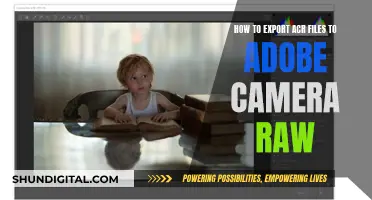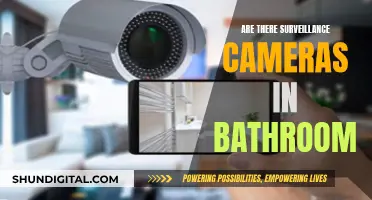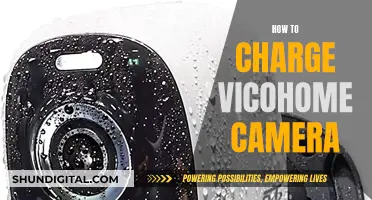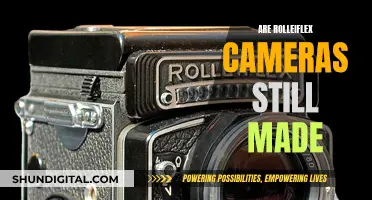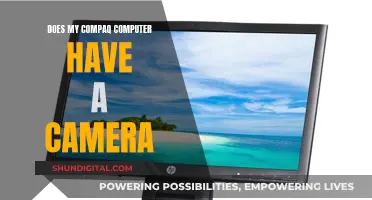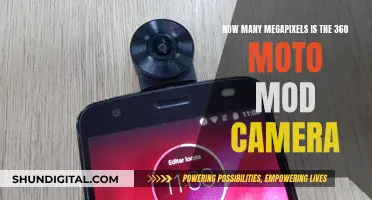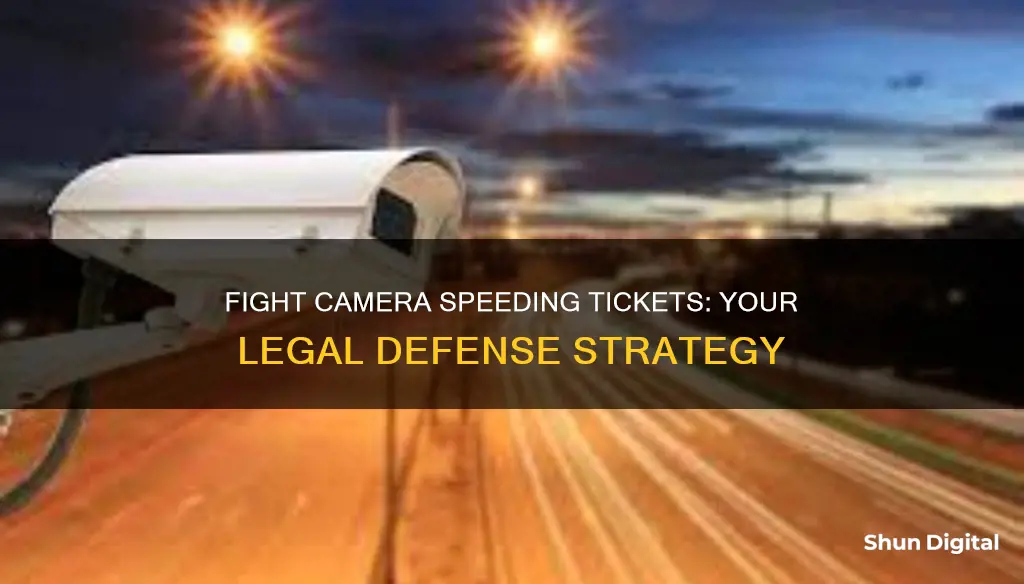
If you've received a speeding ticket from a camera, you may be wondering what to do next. The first thing to know is that you don't have to accept the ticket and pay the fine. There are several steps you can take to dispute the ticket and potentially get it dismissed. Firstly, examine the ticket and check the date, time, and location. If you weren't driving the car at that time, you may not be liable for the ticket. You should also review any photos included with the ticket to ensure they are clear and identifiable. If the images are blurry or don't clearly show you driving, this could be grounds for defence.
Another option is to plead not guilty by mail, online, or in person, depending on the jurisdiction. This will allow you to dispute the ticket and request a formal hearing. During the hearing, you can present your case and challenge the evidence presented against you. For example, you can question the accuracy of the camera by requesting maintenance and calibration records. You can also argue that the signage was missing or incorrect, or even that the camera captured the wrong vehicle.
It's important to act within the specified timeframe, usually within 30 days of receiving the ticket, to avoid additional penalties. Fighting a speeding ticket can be a complex process, and it may be helpful to consult a legal professional for guidance.
| Characteristics | Values |
|---|---|
| Ticket examination | Check the date, time, location, and whether you were driving the car when the ticket was issued. |
| Pleading | Plead not guilty by mail, online, or in court. Do not pay the fine if this implies an admission of guilt. |
| Arraignment | Attend the arraignment or first appearance/notice hearing. |
| Hearing | Request a formal hearing and gather evidence, including photos, maintenance records, and witness statements. |
| Applicable law | Research cases and appellate court decisions on traffic cameras in your city or county. |
| Hearsay | Argue that the photo is hearsay and cannot be admitted as evidence without a witness. |
| Confrontation | Assert your right to confront witnesses, such as those who maintain the camera system. |
| Authenticity | Dispute the authenticity of the photo if no one from the camera maintenance company testifies. |
| Evidence | Challenge the lack of evidence that you were driving or that the traffic light/speed limit sign was functioning properly. |
| Defence | Raise other possible defences, such as a necessity defence for speeding. |
| Payment | Fines for camera speeding tickets typically range from $50 to $250 but can exceed $400 in some cases. |
What You'll Learn

Check the date, time, location, and other details on the ticket
When you receive a camera speeding ticket, it's important to carefully examine the details on the ticket. Check the date, time, and location of the alleged violation. This is crucial because camera tickets are typically sent to the owner of the vehicle, not the driver. Therefore, you need to verify if you were the one driving the car at that specific date, time, and location. It is the prosecutor's responsibility to prove that you were driving in that location at the specified date and time. If someone else borrowed your car, you cannot be prosecuted.
However, it's important to note that some states, like New York, treat red-light camera tickets as parking violations. In such cases, the registered owner of the vehicle is held liable, regardless of who was driving. Therefore, it's essential to check the specific red-light laws in the jurisdiction where you received the ticket.
If you were indeed driving the car, try to recall the details of the incident. Reconstruct the scene and write down any relevant information you remember. For instance, you may have been making a legal right turn on a red light when the camera took the photo. If you were performing a legal manoeuvre, you should be able to get the ticket dismissed.
Additionally, make sure to review any photos included with the ticket. Confirm that the vehicle in the photo is indeed yours and that the photo is clear and not blurry. A blurry photo that doesn't clearly show your license plate could be a valid defence. Similarly, if there is no clearly identifiable photo of you in the driver's seat, it may be challenging for the prosecution to prove that you were driving.
Best Battery-Powered Cameras: Uninterrupted Photography
You may want to see also

Plead not guilty
If you want to dispute a traffic camera ticket, you must plead not guilty. Here are some steps you can take:
- Plead by mail or online if possible. Some jurisdictions allow you to respond to the citation by mail or online, rather than going to a live arraignment in traffic court. You must plead not guilty if you want to dispute the ticket and not pay the fine. Check your citation and make sure you plead not guilty before the deadline, which is typically within 30 days of receiving the ticket.
- Appear at the arraignment if necessary. If you have to appear in traffic court, show up at the date and time listed on your citation. This may also be called a first appearance or a notice hearing, depending on the jurisdiction.
- Request a formal hearing. When you plead not guilty, demand a full formal hearing or trial. You may also be required to attend other hearings, such as pre-trial hearings or mediations. Attend these hearings as required but do not accept anything less than a full dismissal of your ticket.
- Request production of documents. Call the local police department or law enforcement agency in charge of the camera used to issue your citation and request copies of the photos if they were not included with your citation. You should also request full maintenance records for the camera and the traffic light or speed monitoring system to establish that they were regularly monitored and maintained.
- Research the applicable law. Look for cases in your city or county about traffic cameras, and see if any appellate court decisions have ruled on the legality of traffic camera tickets. Aside from the camera itself, there may be other recognised defences, such as the requirement for clearly visible warning signs for cameras to be posted before a traffic light.
Remember that it is the prosecution's burden to prove each element of your violation—it's not your responsibility to prove that you didn't do it.
Inverting Radial Filters in Camera Raw: A Step-by-Step Guide
You may want to see also

Research the law
Researching the law is an important step in fighting a camera speeding ticket. Here are some detailed instructions on how to go about it:
Understand the Different Types of Speed Limits:
There are typically three types of speed limits: "absolute" or "maximum", "presumed" or "prima facie", and "basic" speed limits. Most states use a combination of these, while others use just one type. Knowing which type of speed limit you allegedly violated is crucial, as it determines the available defences.
Identify the Type of Speed Limit You're Accused of Violating:
Check your citation for the name of the violation and the traffic law code section. This information is key to understanding the specific traffic law you allegedly violated and will help you select the most effective defence.
Understand the Applicable Laws and Precedents:
Look for cases in your city or county regarding traffic cameras and check for any appellate court decisions on the legality of traffic camera tickets. Research possible defences recognised by law, such as specific rules about where warning signs must be posted for cameras or speed limits. Some states also recognise a "necessity defence" for speeding, where you can argue that you were speeding to avoid harm or an emergency situation.
Review the Code Section You're Cited For Violating:
Read and understand the law you're accused of breaking, including the elements of the violation and the associated penalties. Ensure that the penalties listed on your ticket match those outlined in the code section. Remember, it's the prosecution's burden to prove each element of your violation, not your responsibility to prove your innocence.
Understand Your Rights as a Defendant:
Know your rights before going to court. You have the right to a court trial with a judge (not a jury), to an attorney, to subpoena witnesses or documents, to cross-examine witnesses testifying against you, and to remain silent. Familiarise yourself with these rights, as they may be glossed over in traffic court.
Learn About the Officer's Means of Measuring Your Speed:
Gather evidence regarding the methods used by the officer to determine your speed. This could include submitting a discovery subpoena to obtain records on the radar device used, checking for malfunctions or recent repairs, and reviewing the officer's training and experience with the equipment.
Research the Officer's Track Record:
Obtain information on the officer's history in traffic court, including any previous cases they've won or lost. This information can help you assess the officer's reliability and credibility as a witness for the prosecution.
Understand the Prosecution's Burden of Proof:
Remember that the prosecution must prove each element of your violation. They must demonstrate that you were driving in that location at the date and time specified, and that you were indeed speeding. If there is any reasonable doubt about these elements, the judge should rule in your favour.
By thoroughly researching the applicable laws, precedents, and your rights, you can build a strong defence and effectively fight a camera speeding ticket.
Undoing Steps in Camera Raw: A Simple Guide
You may want to see also

Challenge the evidence
Challenging the evidence is a key part of fighting a camera speeding ticket. Here are some strategies to consider:
Review the Photos
If you received photos with your citation, review them carefully. Check if your car is clearly identifiable, and if the license plate is visible. If the photos are blurry or unclear, this could be a strong defence. You can argue that the prosecution cannot prove it was your vehicle.
Request Maintenance Records
You can request full maintenance records for the camera, as well as the speed monitoring system. If the equipment was not regularly maintained and calibrated, it could be deemed unreliable, and the evidence could be dismissed. Ask for records to show whether the camera was functioning correctly at the time of the alleged violation.
Challenge the Admissibility of the Photo
In some jurisdictions, a speeding camera photo may be considered hearsay. Hearsay is an out-of-court statement used to prove the truth of a matter asserted. You can argue that the photo is an out-of-court statement by the prosecution, which is being used to prove you violated the traffic law.
Assert Your Right to Confront Witnesses
The Sixth Amendment of the Constitution gives you the right to cross-examine witnesses. Unless a witness appears who can verify the records and system associated with the camera, you do not have this opportunity.
Dispute the Authenticity of the Photo
If no one from the company that maintains the camera shows up in court to verify the photo, you can object to its use due to lack of foundation. The prosecution must present evidence that the camera, the system connecting it to the traffic light, and the traffic light itself were functioning properly. Without this foundation, the photo cannot be admitted as reliable evidence.
Attack the Lack of Evidence
Even if the photos are clear and admissible, if none of them show you driving, you can argue that the prosecution cannot prove it was you. Additionally, the photo does not prove that the traffic light or speed monitoring system was functioning correctly. The prosecution must prove that the equipment was working properly for the photo to stand as evidence of speeding.
Understanding Camera's Capture Mode: What, When, and Why
You may want to see also

Hire a lawyer
Hiring a lawyer to fight a camera speeding ticket can be a good option, especially if you have multiple tickets or a commercial driver's license. Here are some reasons why:
Legal Knowledge and Experience
An attorney can provide informed legal advice and represent you in court. They have the best idea of what tactics and options are available for obtaining good results. Attorneys who spend a lot of time in traffic court are familiar with the tendencies of different judges and sometimes the law enforcement officers who issue the tickets. This local knowledge can be valuable in deciding how to defend against a ticket. They also know what to focus on at trial and can help you avoid presenting explanations that are not considered legal defenses.
Save Time and Effort
If you hire an attorney, you typically won't have to go to court at all. They can represent you in court without you being present, saving you time and effort.
Higher Chance of Success
Traffic lawyers with lots of trial experience are far more likely to win at trial than someone representing themselves. They can help you gather evidence and build a solid defense. They can also help you identify any problems with the photo enforcement system and subpoena company records and personnel related to the maintenance of the camera and its related systems.
Avoid Fines and Insurance Increases
Accumulating multiple tickets can indicate risky driving behavior, which may lead to higher insurance premiums. Contesting the ticket with the help of an attorney can help you avoid fines and potentially prevent an increase in your insurance rates.
Protect Your Driving Record
Even though camera speeding tickets may not add points to your license, maintaining a clean driving record is important. Contesting the ticket with the help of an attorney can help you avoid any negative marks on your record.
When Not to Hire a Lawyer
In some circumstances, hiring a traffic attorney may not be worth the expense. For example, if you're eligible for traffic school and don't have a reasonable chance of beating your ticket, you can probably handle it yourself.
Amcrest Camera Troubleshooting: Night Mode Strobing Issues
You may want to see also
Frequently asked questions
First, check the ticket for the date, time, and location of the violation. If you weren't driving at the time, you can't be prosecuted. If you were, try to remember the details of the incident and write them down. Examine the photos included with the ticket to ensure that your car is identifiable and that the photo is clear. You can then decide whether to plead guilty and pay the fine, or plead not guilty and dispute the ticket.
You can usually plead not guilty by mail, online, or by phone. You will then need to request a hearing, which you should prepare for by gathering evidence and building a legal defence. For example, you can argue that warning signs were obscured or that the camera was not properly calibrated.
Ignoring a camera speeding ticket can lead to additional penalties and fees, legal action, and negative impacts on your driving privileges and financial health. Your vehicle registration may be affected, and your driver's license could be suspended. Unpaid fines may also be sent to a collection agency, impacting your credit score.


